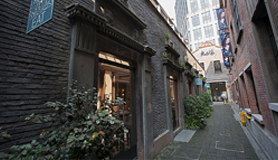
개자추 (?-BC.636)
개자추는 중국 춘추시대 진(晉)나라의 인물로 지극한 충성심과 청렴결백함의 상징이자 우리 민속 명절인 한식(寒食)의 유래가 된 인물이다. 개자추는 진나라의 왕자 중이(훗날의 진 문공)가 권력 다툼에서 밀려 19년 동안이나 타국을 떠돌며 망명 생활을 할 때 끝까지 곁을 지킨 충신이었다. 망명 도중 식량이 떨어져 중이가 굶어 죽을 위기에 처하자 개자추는 자신의 허벅지 살을 베어 국을 끓여 대접함으로써 주군을 살려냈다. 중이는 나중에 이 사실을 알고 큰 감동을 하였으며, 훗날 반드시 이 은혜를 갚겠다고 약속했다. 천신만고 끝에 중이가 왕위에 올라 '진 문공'이 되자, 그를 도왔던 많은 신하가 논공행상을 따지며 벼슬을 얻었다. 그러나 개자추는 "군주가 나라를 되찾은 것은 하늘의 뜻이지 신하들의 힘이 아니다"라고 말하며, 자신의 공을 내세우는 것을 부끄럽게 여기고 보상을 거절한 채 노모를 모시고 면산 깊은 곳으로 들어가 은거해 버렸다. 뒤늦게 자신의 실수를 깨달은 문공이 사람을 보내 불렀으나, 개자추는 끝내 모습을 드러내지 않았다. 산에서 내려오지 않는 개자추를 불러내기 위해 문공은 극단적인 선택을 한다. 산에 불을 지르면 뜨거워서라도 내려올 것이라 생각한 것이다. 그러나 개자추는 산에서 내려오는 대신 어머니를 껴안고 버드나무 아래에서 함께 타 죽는 길을 택했다. 불이 꺼진 뒤 타 죽은 개자추를 발견한 문공은 자신의 경솔함을 자책하며 통곡했다. 그는 개자추의 넋을 기리기 위해 그가 죽은 날만큼은 불을 피우지 말고 찬 음식을 먹으라고 명했는데, 이것이 바로 한식(寒食)의 기원이 되었다.
Jie Zhitui (?-BC.636)
Jie Zhitui (fl. 7th century BC), also known as Jie Zitui, was a Han aristocrat who served the Jin prince Chong'er during the Spring and Autumn Period of Chinese history. Chinese legend holds that when Chong'er finally ascended to power as the duke of Jin ("Duke Wen"), Jie either refused or was passed over for any reward, despite his great loyalty during the prince's times of hardship.
[Learn more]Source : Wikipedia










 HOME
HOME


 0
0




